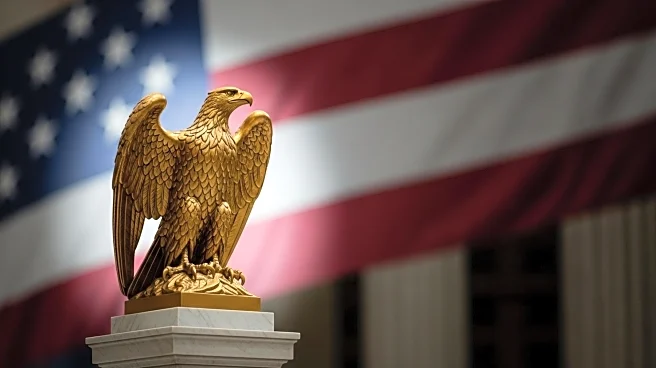What's Happening?
Over the Labor Day weekend, rumors about President Trump's health circulated widely online, suggesting he had died. These rumors were fueled by his absence from public appearances and images showing bruising on his right hand. Trump addressed these speculations during a press conference on September 2, marking his first public appearance since August 26. He criticized the media for not questioning President Biden's health despite his prolonged absence from public events. Mental health experts note that while politicians have a duty to be transparent about their health, the rapid spread of rumors online is a modern challenge. The White House has disclosed that Trump has chronic venous insufficiency, a common condition, and the bruising was due to frequent handshaking.
Why It's Important?
The incident highlights the impact of internet rumors on public perception, especially concerning high-profile figures like President Trump. Such rumors can influence public trust and political discourse, emphasizing the need for transparency from political leaders. The rapid spread of misinformation underscores the challenges in managing public narratives in the digital age. This situation also reflects societal tendencies to speculate on leaders' health, which can affect political stability and governance. The balance between public interest and personal privacy remains a critical issue in political communication.
What's Next?
As misinformation continues to spread rapidly online, political leaders may need to adopt more proactive communication strategies to address public concerns. The White House might increase transparency regarding President Trump's health to prevent future speculation. Additionally, this event could prompt discussions on the ethical responsibilities of media and public figures in managing health-related rumors. Stakeholders, including political analysts and mental health experts, may explore ways to mitigate the impact of such rumors on public trust and political stability.
Beyond the Headlines
The viral nature of the rumors about President Trump's health reflects broader societal issues, such as the search for community and connection in the digital age. The internet provides a platform for people to engage with and spread rumors, creating virtual communities around shared narratives. This phenomenon highlights the psychological aspects of rumor-mongering, where people cope with uncertainty by contemplating worst-case scenarios. It also raises questions about the ethical implications of discussing public figures' health and the role of media in shaping public perception.









